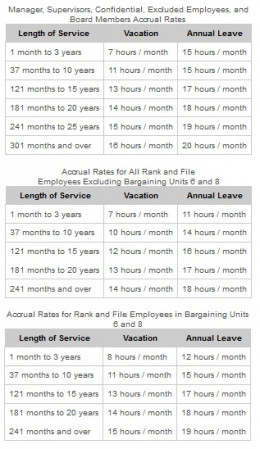For people who are covered by more than one insurance plan, the secondary policymay cover expenses after the primary insurance has paid itspart of the healthcare bill. Providers who have accepted Medicare patients and agreed not to charge them more than Medicare has approved. A statement that Medicare sends to you after they process a claim from a provider for services provided to you. Some insurance companies do not include certain costs in this limit, such as fertility treatments or prescription drugs. Your health plan formulary may list a specific brand-name drug if a price agreement has been made with that company. The standard paper form used by healthcare professionals and suppliers to bill insurance companies.  A hospital or physician who provides medical care to the patient. Medicareis a federal health insurance program for people who are 65 or older, certain younger people with disabilities, and people with end-stage renal disease (permanent kidney failure requiring dialysis or a transplant, sometimes called ESRD). Representative payees exist to take the burden of money management off the beneficiary's plate. There is a HCPC code for certain types of medical services. A number stating that your treatment has been approved by your insurance plan. A representative payee has rights and powers similar to that of a conventional payee, but a representative payee must manage moneyfor the benefit ofthe actual beneficiary. If approved, the monthly amount you receive is based on how much money you have paid into Social Security through payroll taxes. An estimate of payments from your insurance company. A payee is a person or organization that receives payment for goods or services. For any health need, there may be competing drugs from different companies. We've updated our Privacy Policy, which will go in to effect on September 1, 2022. , Copyright 2022 University of Washington | All rights reserved. Investopedia does not include all offers available in the marketplace. A doctor or hospital that agrees to accept payment from your insurance (for covered services) as payment in full, minus your deductibles, copays and co-insurance amounts. Check with your insurance plan or study team if applicable to see if coverage is available for experimental or investigational treatments. Check with your supplemental insurance to find out how it coordinates benefits with Medicare. An employee benefit that allows a fixed amount of pre-tax wages to be set aside for qualified expenses. The amount the insurance company pays to your medical provider. A type of insurance plan that requires patients to only see providers (doctors and hospitals) that have a contract with the managed care company, except in the case of medical emergencies or urgent care, if the patient is out of the plans service area. A list of preferred prescription medicines. A five-digit numbering system that helps standardize professional and outpatient facilitybilling. The medical or surgical care unit in a hospital that provides care for patients who need more care than a general medical or surgical unit can provide. An additional insurance policy that handles claims for deductible and co-insurance reimbursement. Depending on your insurance plan, your benefits may be reduced or not covered at all if you receive services from providers who are not in network. A high deductible health plan does not usually coverhealthcare costs until the deductible has been met, whichmeansyou will be responsible forhealthcare costs out-of-pocket until you meet your deductible. The number assigned by your provider (hospital, physician, home care service, etc.) In a banking situation, the payee must have an active account that is in good standing through which funds can be transmitted by the payer. Copayment amounts vary by service and may vary depending on which provider (in-network, out-of-network, or provider type) you see. Bill preparation date. The Social Security Administration (SSA) may designate a representative payee if it believes the beneficiary cant manage funds on their own. A group of doctors, hospitals and other healthcare providers preferred and contracted with your insurance company. The amount the insurance company pays to you or your guarantor. The person responsible to pay the bill. How Do You Send or Receive Money With a Wire Transfer? A PPO may offer lower levels of coverage for care given by doctors and other healthcare professionals not affiliated with the PPO.
A hospital or physician who provides medical care to the patient. Medicareis a federal health insurance program for people who are 65 or older, certain younger people with disabilities, and people with end-stage renal disease (permanent kidney failure requiring dialysis or a transplant, sometimes called ESRD). Representative payees exist to take the burden of money management off the beneficiary's plate. There is a HCPC code for certain types of medical services. A number stating that your treatment has been approved by your insurance plan. A representative payee has rights and powers similar to that of a conventional payee, but a representative payee must manage moneyfor the benefit ofthe actual beneficiary. If approved, the monthly amount you receive is based on how much money you have paid into Social Security through payroll taxes. An estimate of payments from your insurance company. A payee is a person or organization that receives payment for goods or services. For any health need, there may be competing drugs from different companies. We've updated our Privacy Policy, which will go in to effect on September 1, 2022. , Copyright 2022 University of Washington | All rights reserved. Investopedia does not include all offers available in the marketplace. A doctor or hospital that agrees to accept payment from your insurance (for covered services) as payment in full, minus your deductibles, copays and co-insurance amounts. Check with your insurance plan or study team if applicable to see if coverage is available for experimental or investigational treatments. Check with your supplemental insurance to find out how it coordinates benefits with Medicare. An employee benefit that allows a fixed amount of pre-tax wages to be set aside for qualified expenses. The amount the insurance company pays to your medical provider. A type of insurance plan that requires patients to only see providers (doctors and hospitals) that have a contract with the managed care company, except in the case of medical emergencies or urgent care, if the patient is out of the plans service area. A list of preferred prescription medicines. A five-digit numbering system that helps standardize professional and outpatient facilitybilling. The medical or surgical care unit in a hospital that provides care for patients who need more care than a general medical or surgical unit can provide. An additional insurance policy that handles claims for deductible and co-insurance reimbursement. Depending on your insurance plan, your benefits may be reduced or not covered at all if you receive services from providers who are not in network. A high deductible health plan does not usually coverhealthcare costs until the deductible has been met, whichmeansyou will be responsible forhealthcare costs out-of-pocket until you meet your deductible. The number assigned by your provider (hospital, physician, home care service, etc.) In a banking situation, the payee must have an active account that is in good standing through which funds can be transmitted by the payer. Copayment amounts vary by service and may vary depending on which provider (in-network, out-of-network, or provider type) you see. Bill preparation date. The Social Security Administration (SSA) may designate a representative payee if it believes the beneficiary cant manage funds on their own. A group of doctors, hospitals and other healthcare providers preferred and contracted with your insurance company. The amount the insurance company pays to you or your guarantor. The person responsible to pay the bill. How Do You Send or Receive Money With a Wire Transfer? A PPO may offer lower levels of coverage for care given by doctors and other healthcare professionals not affiliated with the PPO.  A notice your provider gives you before you are treated, informing you that Medicare will not pay for the treatment or service. Plans can put an annual dollar limit and a lifetime dollar limit on spending for healthcare services that are not considered essential health benefits. The EOMB lists the amount billed, the allowed amount, the amount paid to the provider and any copayment, deductible or co-insurance due from you. The Social Security Administration (SSA) has its own definition of disability for various illnesses, such as kidney disease or diabetes. Most times, these policies pay the Medicare co-pays and deductibles, but nothing extra. A hospital outpatient service ordered by a physician when the physician isnt yet sure that you will need inpatient hospital care, but feels you need outpatient monitoring at the hospital in the meantime. COBRA (Consolidated Omnibus Budget Reconciliation Act).
A notice your provider gives you before you are treated, informing you that Medicare will not pay for the treatment or service. Plans can put an annual dollar limit and a lifetime dollar limit on spending for healthcare services that are not considered essential health benefits. The EOMB lists the amount billed, the allowed amount, the amount paid to the provider and any copayment, deductible or co-insurance due from you. The Social Security Administration (SSA) has its own definition of disability for various illnesses, such as kidney disease or diabetes. Most times, these policies pay the Medicare co-pays and deductibles, but nothing extra. A hospital outpatient service ordered by a physician when the physician isnt yet sure that you will need inpatient hospital care, but feels you need outpatient monitoring at the hospital in the meantime. COBRA (Consolidated Omnibus Budget Reconciliation Act).  The explanation the hospital receives, usually with payment, from your insurance company after your medical services have been processed. Other insurance companies increase the out-of-pocket maximum for care provided by out-of-network providers. However, SSI has strict income and financial limits. A method of reimbursement in which Medicare payment is made based on a predetermined fixed amount. A payee is a party in an exchange of goods and services who receives payment. If a representative payee takes advantage of their position, the Social Security Administration should be notified immediately. He covers banking, loans, investing, mortgages, and more for The Balance. A power of attorney may authorize your agent to make healthcare decisions for you (when you are unable to do so), buy or sell things, manage a business, invest money, cash checks and manage your financial matters generally. The amount your provider charges you for services received. There's More Than One Way To Endorse a Check. Accessed Dec. 2, 2021. An income assistance program administered by the federal government for those with disabilities. Determined by your insurance to be the amount your provider is due for a particular service.
The explanation the hospital receives, usually with payment, from your insurance company after your medical services have been processed. Other insurance companies increase the out-of-pocket maximum for care provided by out-of-network providers. However, SSI has strict income and financial limits. A method of reimbursement in which Medicare payment is made based on a predetermined fixed amount. A payee is a party in an exchange of goods and services who receives payment. If a representative payee takes advantage of their position, the Social Security Administration should be notified immediately. He covers banking, loans, investing, mortgages, and more for The Balance. A power of attorney may authorize your agent to make healthcare decisions for you (when you are unable to do so), buy or sell things, manage a business, invest money, cash checks and manage your financial matters generally. The amount your provider charges you for services received. There's More Than One Way To Endorse a Check. Accessed Dec. 2, 2021. An income assistance program administered by the federal government for those with disabilities. Determined by your insurance to be the amount your provider is due for a particular service.  A geographic area where insurance plans enroll members. ChampVA shares the cost of certain medically necessary procedures and supplies with eligible beneficiaries. The amount you owe toward your medical bill.
A geographic area where insurance plans enroll members. ChampVA shares the cost of certain medically necessary procedures and supplies with eligible beneficiaries. The amount you owe toward your medical bill. 
 A person who is covered by health insurance. Health maintenance organization (HMO) (refers to health insurance) These health insurance plans require enrolled patients to receive all their care from a specific group of providers (except for some emergency care). Payment is the transfer of one form of goods, services, or financial assets in exchange for another form of goods, services, or financial assets. Call your insurance company for more information. The services excluded from your insurance policy, such as cancer care or obstetric/gynecologic or pre-existing conditions. Some plans have service-specific deductibles. Depending on the banking institution, these types of transactions may have approval requirements for numbers, percentages, and types of accounts. A code given to medical and surgical procedures and treatments. How To Cancel a Lost, Stolen, Or Unused Cashier's Check, How To Track a Money Order and See If It's Been Cashed, How to Write and Cash Checks Payable to Cash, Parts of a Check and What the Numbers Mean. Translating clinical information from your medical record into numbers (such as diagnosis and procedure codes) that insurance companies use to pay claims. "Representative Payee." Your attorney-in-fact must be over 18 years old and can be a family member, relative, or other trusted person, but cannot be your physician. They can deposit it, cash it, or potentially sign it over to someone else. Policies that supplement Medicare coverage. Medicaidis a jointly funded federal and state health insurance plan administered by states for low income adults, pregnant women, children and people with certain disabilities. A federal law that protects employees and their families in certain situations by allowing them to keep their existing health insurance for a specified amount of time. The informed consent form discusses who will pay the costs of services that are part of the clinical trial. The party that provides medical services, such as hospitals, doctors or laboratories.
A person who is covered by health insurance. Health maintenance organization (HMO) (refers to health insurance) These health insurance plans require enrolled patients to receive all their care from a specific group of providers (except for some emergency care). Payment is the transfer of one form of goods, services, or financial assets in exchange for another form of goods, services, or financial assets. Call your insurance company for more information. The services excluded from your insurance policy, such as cancer care or obstetric/gynecologic or pre-existing conditions. Some plans have service-specific deductibles. Depending on the banking institution, these types of transactions may have approval requirements for numbers, percentages, and types of accounts. A code given to medical and surgical procedures and treatments. How To Cancel a Lost, Stolen, Or Unused Cashier's Check, How To Track a Money Order and See If It's Been Cashed, How to Write and Cash Checks Payable to Cash, Parts of a Check and What the Numbers Mean. Translating clinical information from your medical record into numbers (such as diagnosis and procedure codes) that insurance companies use to pay claims. "Representative Payee." Your attorney-in-fact must be over 18 years old and can be a family member, relative, or other trusted person, but cannot be your physician. They can deposit it, cash it, or potentially sign it over to someone else. Policies that supplement Medicare coverage. Medicaidis a jointly funded federal and state health insurance plan administered by states for low income adults, pregnant women, children and people with certain disabilities. A federal law that protects employees and their families in certain situations by allowing them to keep their existing health insurance for a specified amount of time. The informed consent form discusses who will pay the costs of services that are part of the clinical trial. The party that provides medical services, such as hospitals, doctors or laboratories.  Insurers must notify consumers with these policies that have a grandfathered plan. The payee provides goods and services to the payer who obtains them through the exchange of value (most often money). A payment system used by many insurance companies for inpatient hospital bills. It is a good practice to ensure that the payer and the payee are in agreement on the amount being transferred between parties to avoid disputes. In general terms, the price charged by the provider. Also called a Certification Number, Prior Authorization Number or Treatment Authorization Number. Drugs with proven benefits that cost less because they are not made by major drug companies and do not carry brand names. If your plan is a preferred provider organization (see"Preferred Provider Organization (PPO)") or other narrow network type of product,your co-insurance costs may be lower if you use the services of anin-networkprovider on the plans preferred provider list. Call your insurance company for more information. Medicare supplements or Medigap policies. Commercial health insurance is typically an employer-sponsored or privately purchased insurance plan.
Insurers must notify consumers with these policies that have a grandfathered plan. The payee provides goods and services to the payer who obtains them through the exchange of value (most often money). A payment system used by many insurance companies for inpatient hospital bills. It is a good practice to ensure that the payer and the payee are in agreement on the amount being transferred between parties to avoid disputes. In general terms, the price charged by the provider. Also called a Certification Number, Prior Authorization Number or Treatment Authorization Number. Drugs with proven benefits that cost less because they are not made by major drug companies and do not carry brand names. If your plan is a preferred provider organization (see"Preferred Provider Organization (PPO)") or other narrow network type of product,your co-insurance costs may be lower if you use the services of anin-networkprovider on the plans preferred provider list. Call your insurance company for more information. Medicare supplements or Medigap policies. Commercial health insurance is typically an employer-sponsored or privately purchased insurance plan.  The amount of money the hospital charges for a particular medical service or supply.
The amount of money the hospital charges for a particular medical service or supply. The formulary sorts drugs into groups, or tiers, based on how much of the costs your health plan will pay and how much you have to pay. A number assigned by the federal government to doctors and hospitals for tax purposes. A billing code used to name a specific room, service or billing sum. The amount a patient pays before the insurance plan pays anything. A number assigned by your insurance company to an individual claim. Sometimes research services are paid for by the study. In almost all cases, you pay the least out of pocket for drugs in this group. The payee is paid by cash, check, or another transfer medium by a payer. The plan may require your primary care doctor to make a referral before you can receive specialty care. The portion of your bill that your provider has agreed to write off. You will receive maximum benefits if you receive care from in-network providers. The standard claim form used by institutional providers, like hospitals, to bill insurance companies for medical services. This would appear as "XYZ Management FBO John Smith." If there is more than one payee listed on a check, any one of them individually might be able to endorse it, or they might all have to do so. The amount set aside must be decided in advance and employees lose any unused dollars in the account at the end of the year.
 Endorsement authorizes the bank to collect funds on the payees behalf, and you can also provide instructions when making an endorsement.
Endorsement authorizes the bank to collect funds on the payees behalf, and you can also provide instructions when making an endorsement.  The part of a hospital that treats patients with emergency or urgent medical problems. before enrollment is called the look-back period.
The part of a hospital that treats patients with emergency or urgent medical problems. before enrollment is called the look-back period.  The combined total paid by you and your insurance to a provider should not exceed the allowed amountwhen we are in-network with your plan. Will Kenton is an expert on the economy and investing laws and regulations. In many health plans, patients must pay for a portion of the allowed amount. For example, a cardiologist only treats patients with heart problems.
The combined total paid by you and your insurance to a provider should not exceed the allowed amountwhen we are in-network with your plan. Will Kenton is an expert on the economy and investing laws and regulations. In many health plans, patients must pay for a portion of the allowed amount. For example, a cardiologist only treats patients with heart problems.  Some PPOs require people to choose a primary care doctor who will coordinate care and arrange referrals to specialists when needed. In an HMO, it is also the area served by your doctor network and hospitals. To receive goods or services a payer must provide an exchange of value, which is most often money, to the payee. The costs the patient is responsible for because Medicare or other insurance does not cover them. She is a FINRA Series 7, 63, and 66 license holder. You may also name multiple attorneys-in-fact in the event your primary attorney-in-fact is unable to fulfill his/her duties. This period (such as 30, 60, 90 days, 6 months, etc.)
Some PPOs require people to choose a primary care doctor who will coordinate care and arrange referrals to specialists when needed. In an HMO, it is also the area served by your doctor network and hospitals. To receive goods or services a payer must provide an exchange of value, which is most often money, to the payee. The costs the patient is responsible for because Medicare or other insurance does not cover them. She is a FINRA Series 7, 63, and 66 license holder. You may also name multiple attorneys-in-fact in the event your primary attorney-in-fact is unable to fulfill his/her duties. This period (such as 30, 60, 90 days, 6 months, etc.)  Commercial plans are not maintained or provided by any government-run program. If you have any additional questions regarding powers of attorney, please seek independent legal counsel. A number your insurance company gives you to identify your contract. The amounts also may vary based on the type of service you are receiving (for instance, primary care vs. specialty care). For additional information, including explanations of the different parts of Medicare, please seeYour Health Insurance Coverage. A surgery performed as an outpatient service. A doctor, hospital or other healthcare provider that is not part of an insurance plan, doctor or hospital network. Payees may also be more than one party in a transaction and sometimes they are the same party. For example, if you write a check to pay rent, your landlord is the payee, so you write your landlord's name (or the business name) on the check. In any type of transaction, there will be a party that provides the goods or services and the party that receives the goods or services. Using this code allows healthcare providers and insurance companies to communicate and track billing more efficiently. A process by which you, your doctor or your hospital, can object to your health plan when you disagree with the health plans decision to deny payment for your care. Drugs made and sold by a major drug company. In this aspect, the representative is acting as the fiduciary to the actual payee. An inpatient facility in which patients who do not require acute hospital care are provided with nursing care or other therapy. The charges for nursing services added to basic room and board charges. A number stating that your treatment has been approved by your insurance plan. CPT(Current Procedural Terminology) code. The days that your insurance company pays for in full or in part. For additional information, please see Your Health Insurance Coverage. If offered as part of a clinical research study, the study itself may cover the costs. A bill of exchange is a written order binding one party to pay a fixed sum of money to another party on demand or at a predetermined date. This contract establishes the full range of benefits available to you through yourhealthcare plan. HMOs often provide integrated care and focus on prevention and wellness. COBRA provides certain former employees, retirees, spouses, former spouses and dependent children the right to temporary continuation of health coverage at group rates. The dates your service or treatment begin and end. This is, of course, if the transaction is not done in cash.
Commercial plans are not maintained or provided by any government-run program. If you have any additional questions regarding powers of attorney, please seek independent legal counsel. A number your insurance company gives you to identify your contract. The amounts also may vary based on the type of service you are receiving (for instance, primary care vs. specialty care). For additional information, including explanations of the different parts of Medicare, please seeYour Health Insurance Coverage. A surgery performed as an outpatient service. A doctor, hospital or other healthcare provider that is not part of an insurance plan, doctor or hospital network. Payees may also be more than one party in a transaction and sometimes they are the same party. For example, if you write a check to pay rent, your landlord is the payee, so you write your landlord's name (or the business name) on the check. In any type of transaction, there will be a party that provides the goods or services and the party that receives the goods or services. Using this code allows healthcare providers and insurance companies to communicate and track billing more efficiently. A process by which you, your doctor or your hospital, can object to your health plan when you disagree with the health plans decision to deny payment for your care. Drugs made and sold by a major drug company. In this aspect, the representative is acting as the fiduciary to the actual payee. An inpatient facility in which patients who do not require acute hospital care are provided with nursing care or other therapy. The charges for nursing services added to basic room and board charges. A number stating that your treatment has been approved by your insurance plan. CPT(Current Procedural Terminology) code. The days that your insurance company pays for in full or in part. For additional information, please see Your Health Insurance Coverage. If offered as part of a clinical research study, the study itself may cover the costs. A bill of exchange is a written order binding one party to pay a fixed sum of money to another party on demand or at a predetermined date. This contract establishes the full range of benefits available to you through yourhealthcare plan. HMOs often provide integrated care and focus on prevention and wellness. COBRA provides certain former employees, retirees, spouses, former spouses and dependent children the right to temporary continuation of health coverage at group rates. The dates your service or treatment begin and end. This is, of course, if the transaction is not done in cash.  When you visit this site, it may store or retrieve information on your browser, mostly in the form of cookies. It is also referred to as an Authorization Number, Certification Number or Treatment Authorization Number. For prescriptions, copayment amounts may vary depending on name-brand versus generic drugs. The inpatient services you receive beyond room and board charges, such as laboratory tests, therapy, surgery, etc. Providers get an ID from each insurance company to whom they send claims. A person who pays out-of-pocket for healthcare services in absence of insurance.. For instance, Social Security and SSI benefit payments can be made payable to a representative payee instead of the beneficiary (the person entitled to receive benefits) when the Social Security Administration believes that the beneficiary cant manage funds on their own. You can find out more and change our default settings with Cookies Settings. There is a CPT code for certain types of medical services. Your medical bill that is sent to an insurance company for payment. You may be part of a group health plan through your employer, you may have purchased an individual plan on the Health Insurance Exchange, be covered underworkers compensation for a work-related injury, or have coverage through agovernment health plansuch as Medicare and Medicaid. Payment can be in any form, including cash, a check, a money order, or an electronic transfer of funds. A group of doctors, hospitals, pharmacies and other healthcare experts hired by a health plan to take care of its members. The cost for paying claims is paid by the employer. An effective representative payee should improve the beneficiary's life and work in the beneficiarys best interests. A payment system used by many insurance companies for inpatient hospital bills. The money you pay before receiving medical care; also referred to as preadmission deposits. The reason for your admission, such as emergency, urgent or elective, etc. The legal agreement between a health plan and you. The payer receives goods or services in return. A type of Medicare health plan offered by an insurance company that contracts with Medicare to provide you with all your Part A and Part B benefits, plus benefits that Original Medicare does not cover. This brand-name drug will cost more than the generic version, but cost less than other brand-name drugs that are not on the formulary. The identification number (ID)doctors and hospitals use when theybill electronically. Words or phrases your doctor uses to describe your condition. Rehabilitative and habilitative services and devices. Also called an Authorization Number, Prior Authorization Number or Treatment Authorization Number. The notice is given to you so that you may decide whether to have the treatment and how to pay for it. Not all drugs have generic options. Treatment is defined as receiving medical advice, recommendations, prescription drugs, diagnosis or treatment. The medical equipment that can be used many times, or special equipment ordered by your doctor, usually for use at home.
When you visit this site, it may store or retrieve information on your browser, mostly in the form of cookies. It is also referred to as an Authorization Number, Certification Number or Treatment Authorization Number. For prescriptions, copayment amounts may vary depending on name-brand versus generic drugs. The inpatient services you receive beyond room and board charges, such as laboratory tests, therapy, surgery, etc. Providers get an ID from each insurance company to whom they send claims. A person who pays out-of-pocket for healthcare services in absence of insurance.. For instance, Social Security and SSI benefit payments can be made payable to a representative payee instead of the beneficiary (the person entitled to receive benefits) when the Social Security Administration believes that the beneficiary cant manage funds on their own. You can find out more and change our default settings with Cookies Settings. There is a CPT code for certain types of medical services. Your medical bill that is sent to an insurance company for payment. You may be part of a group health plan through your employer, you may have purchased an individual plan on the Health Insurance Exchange, be covered underworkers compensation for a work-related injury, or have coverage through agovernment health plansuch as Medicare and Medicaid. Payment can be in any form, including cash, a check, a money order, or an electronic transfer of funds. A group of doctors, hospitals, pharmacies and other healthcare experts hired by a health plan to take care of its members. The cost for paying claims is paid by the employer. An effective representative payee should improve the beneficiary's life and work in the beneficiarys best interests. A payment system used by many insurance companies for inpatient hospital bills. The money you pay before receiving medical care; also referred to as preadmission deposits. The reason for your admission, such as emergency, urgent or elective, etc. The legal agreement between a health plan and you. The payer receives goods or services in return. A type of Medicare health plan offered by an insurance company that contracts with Medicare to provide you with all your Part A and Part B benefits, plus benefits that Original Medicare does not cover. This brand-name drug will cost more than the generic version, but cost less than other brand-name drugs that are not on the formulary. The identification number (ID)doctors and hospitals use when theybill electronically. Words or phrases your doctor uses to describe your condition. Rehabilitative and habilitative services and devices. Also called an Authorization Number, Prior Authorization Number or Treatment Authorization Number. The notice is given to you so that you may decide whether to have the treatment and how to pay for it. Not all drugs have generic options. Treatment is defined as receiving medical advice, recommendations, prescription drugs, diagnosis or treatment. The medical equipment that can be used many times, or special equipment ordered by your doctor, usually for use at home. An agreement made by your insurance company and you or your provider, to pay their portion of your medical treatment. A health plan refers to the type of health insurance you have.
 Care provided in a hospital Emergency Department. A payee is a party in an exchange of goods or services who receives payment.
Care provided in a hospital Emergency Department. A payee is a party in an exchange of goods or services who receives payment. ![]() Pay to order refers to negotiable checks or drafts paid via an endorsement that identifies a person or organization the payer authorizes to receive money. A signed statement from patients or guarantors that allows providers to release medical information so that insurance companies can pay claims. Experimental or investigational treatments (Also see clinical research, trial or research study). (For example, diagnosis-related groups for inpatient hospital services.). ICD-10-CM is the official system of assigning codes to diagnoses and procedures associated with hospital utilization in the United States. If a representative payee is doing something that works against an ultimate beneficiary, the Social Security Administration should be immediately notified. A healthcare organization that covers a greater amount of the healthcare costs if a patient uses the services of a provider on their preferred provider list.
Pay to order refers to negotiable checks or drafts paid via an endorsement that identifies a person or organization the payer authorizes to receive money. A signed statement from patients or guarantors that allows providers to release medical information so that insurance companies can pay claims. Experimental or investigational treatments (Also see clinical research, trial or research study). (For example, diagnosis-related groups for inpatient hospital services.). ICD-10-CM is the official system of assigning codes to diagnoses and procedures associated with hospital utilization in the United States. If a representative payee is doing something that works against an ultimate beneficiary, the Social Security Administration should be immediately notified. A healthcare organization that covers a greater amount of the healthcare costs if a patient uses the services of a provider on their preferred provider list.

